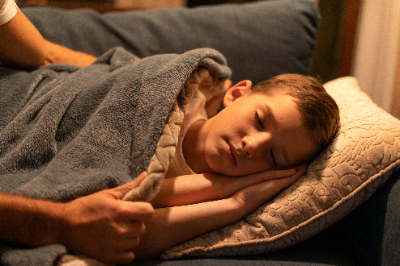As parents, we all know the struggle of getting our kids to sleep. Whether it’s dealing with bedtime battles, nighttime wake-ups, or early rising, children’s sleep patterns can be a mystery. Understanding the factors that influence kids’ sleep can lead to better sleep habits and overall well-being for the whole family. In this article, we will explore the secrets of children’s sleep and provide tips for improving their sleep patterns.
Why is Sleep Important for Kids?
Sleep is crucial for children’s physical, emotional, and cognitive development. Adequate sleep helps children concentrate, learn, and problem-solve. It also plays a vital role in mood regulation and behavior control. Children who don’t get enough sleep are more likely to have behavioral issues, trouble focusing, and poor academic performance.
Factors that Influence Children’s Sleep Patterns
There are several factors that can affect children’s sleep patterns, including:
1. Age
Children’s sleep needs change as they grow. Infants typically need 14-17 hours of sleep per day, toddlers need 11-14 hours, preschoolers need 10-13 hours, and school-age children need 9-11 hours.
2. Environment
The bedroom environment can impact children’s sleep. A dark, cool, quiet room with a comfortable mattress and bedding can promote better sleep. Avoiding screens and stimulating activities before bedtime can also help kids wind down.
3. Routine
Establishing a consistent bedtime routine can signal to children that it’s time to sleep. A routine that includes calming activities like reading a book or taking a bath can help children relax and prepare for bedtime.
4. Diet and Exercise
A balanced diet and regular exercise are important for children’s overall health, including their sleep. Avoiding caffeine, sugar, and heavy meals close to bedtime can help children sleep better.
Common Sleep Problems in Children

There are several common sleep problems that can affect children, including:
1. Bedtime Battles
Many children resist going to bed, leading to bedtime battles. Establishing a consistent bedtime routine and setting clear expectations can help reduce bedtime battles.
2. Nighttime Wake-Ups
Nighttime wake-ups are common in children, especially infants and toddlers. Addressing any underlying issues, such as hunger or discomfort, can help reduce nighttime wake-ups.
3. Early Rising
Some children wake up early, before they’ve had enough sleep. Ensuring that children have a consistent bedtime and sleep environment can help prevent early rising.
Tips for Improving Children’s Sleep Patterns
Here are some tips for improving children’s sleep patterns:
1. Establish a Consistent Bedtime Routine
Creating a consistent bedtime routine can help children relax and prepare for sleep. A routine that includes calming activities like reading a book or taking a bath can signal to children that it’s time to sleep.
2. Create a Sleep-Friendly Environment
A dark, cool, quiet room with a comfortable mattress and bedding can promote better sleep. Removing screens and stimulating activities from the bedroom can also help children wind down.
3. Set Clear Expectations
Setting clear expectations around bedtime can help children understand what is expected of them. Establishing rules around bedtime and enforcing them consistently can reduce bedtime battles.
4. Address Underlying Issues
If your child is experiencing frequent nighttime wake-ups or early rising, it’s important to address any underlying issues. This may involve adjusting your child’s diet, addressing any medical concerns, or making changes to their sleep environment.
Conclusion
Understanding and improving children’s sleep patterns is essential for their overall well-being. By identifying the factors that influence children’s sleep and implementing tips for better sleep habits, parents can help their children get the rest they need to thrive. By prioritizing healthy sleep habits, families can enjoy better sleep and improved quality of life.
With these tips and insights, parents can unlock the secrets of children’s sleep and create a more restful and rejuvenating bedtime routine for the whole family.







































